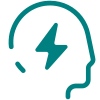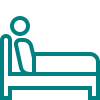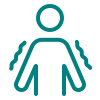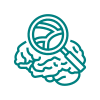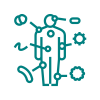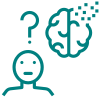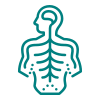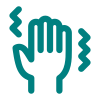Conditions
There are numerous neurological conditions that we specialize in treating. Explore the various conditions we manage and seek assistance from our experienced providers.
Episodic Migraine
Migraine attacks that come and go. The most common subtype of migraine.
Chronic Migraine
Migraine that has become near daily. Most of the headaches may not even have features of migraine.
Vestibular Migraine
Migraine with associated vertigo-like symptoms. This is most commonly a subtype of chronic migraine.
Menstrual Migraine
A type of migraine experienced consistently around menstruation.
Post Concussive Migraine
Migraine that presents after head trauma. This is usually in concert with other post-concussive symptoms.
Chronic Tension Type Headache
Headaches without migraine features that can be near daily.
Episodic Tension Type Headache
The most common type of headache. What most people consider a “regular” headache.
CSF Leak (Intracranial Hypotension)
A condition of low spinal fluid pressure, usually leading to positional headache (worse when upright).
Intracranial Hypertension (IIH)
A condition of high spinal fluid pressure, usually leading to positional headache (worse when laying down) and with commonly with visual changes.
Episodic Cluster Headache
Severe one sided headache attacks that “cluster” over a 1-2 month period of time.
Chronic Cluster Headache
Severe one sided headache attacks that occur without a month of headache freedom
Hemicrania Continua
Continuous one sided headache pain with migraine-like exacerbations that responds to a specific medication.
Paroxysmal Hemicrania
Shorter lasting one sided headache attacks that only respond to a specific medication.
SUNCT
Extremely short lasting one sided attacks where the eye tears and turns red
SUNA
Extremely short lasting one sided attacks with other symptoms on the same side, including eyelid drooping, tearing, sinus congestion or runny nose
Cervicogenic Headache
Headache associated with neck pain – either with arthritis or muscle tension and spasm
Occipital Neuralgia
Reproducible pain in the back of the head in one or two specific areas. It can be due to chronic migraine, neck pain, or sometimes it can happen by itself.
Hypnic Headache
Headache that wakes you up at the same time of night. Also called “alarm call headache.”
Epilepsy
Episodes of abnormal electrical activity that cause loss of consciousness and unintentional movements.
Nonepileptic Seizures (NES)
Seizure-like attacks and symptoms not caused by electrical activity in the brain
Post-Concussion Syndrome
Symptoms (such as headache, dizziness, brain fog, etc.) after a head trauma that persist.
TIA
An episode of stroke that lasts less than 24 hours with a normal MRI
Stroke
Recovery after a stroke – to avoid further vascular episodes and obtain appropriate therapies
Optic Neuritis (ON)
Inflammation of the optic nerve causing vision loss.
Vascular Dementia
Cognitive decline caused by impaired blood flow.
Alzheimer Disease
Progressive memory loss and cognitive decline.
Parkinson’s Disease
A neurodegenerative disorder with tremors, slow movement, rigidity, and balance issues due to dopamine loss.
Parkinsonism
A group of conditions with Parkinson’s-like symptoms but different causes, including drug-induced, vascular, and atypical forms
Restless Legs Syndrome
A disorder causing an urge to move the legs, usually with uncomfortable sensations.
Tourette Syndrome
A condition with repetitive, involuntary tics, both motor and vocal.
Cerebral Palsy
A group of disorders affecting movement and muscle tone, caused by damage to the developing brain.
Epilepsy
A disorder characterized by recurrent seizures due to abnormal electrical activity in the brain.
Attention-Deficit/Hyperactivity Disorder
A condition characterized by inattention, hyperactivity, and impulsiveness.
Hydrocephalus
A condition where excess cerebrospinal fluid accumulates in the brain, leading to increased pressure.



